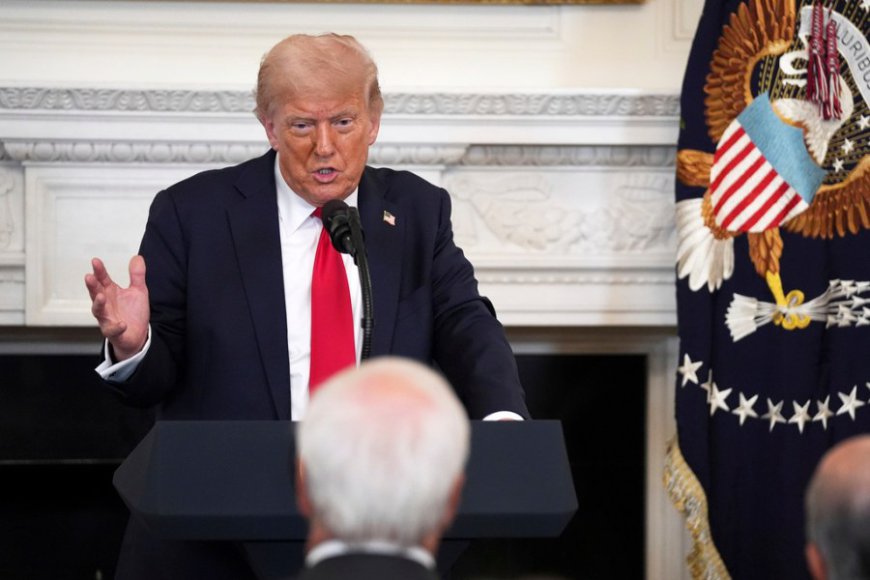End wasteful spending now, fix the budget next
The Senate is considering the administration's $9.4 billion rescissions request to cancel unneeded appropriations, which would reduce spending by around $100 billion over the next decade.

With two minutes to midnight, the Senate is taking up President Trump’s $9.4 billion rescission request to cancel unneeded appropriations this week. The House approved it on June 12. If the Senate amends the bill on the floor, the House will have to pass it again.
Friday, July 18, is the deadline. The Impoundment Control Act of 1974 sets the terms for a president to ask Congress to cancel appropriated spending. If Congress does not act within 45 days, the administration must spend the funds. After all, Congress exercises legislative powers, and the president must take care that the laws are faithfully executed.
Congress should agree to cancel these funds. Incorporating the savings into the baseline would reduce spending by around $100 billion over the next decade. That’s one-eightieth of the next decade’s $8 trillion in new borrowing, but Congress has to start somewhere.
Approving the request would open the door for the Office of Management and Budget to propose additional savings with far larger impacts. This isn’t just about dollars, of course. Governments destroy value when the benefits of additional spending are less than the costs, including not only the deadweight losses from taxation or debt financing, but also other effects on private initiative, the capacity of other governments, and more.
Office of Management and Budget Director Russ Vought has also suggested that Congress’s refusal to eliminate waste would encourage the administration to use other tools. Those tools could ruffle feathers on Capitol Hill, but Congress’s ability to vindicate its powers isn’t as strong as it could be.
Returning to the request before the Senate, it seeks savings in certain foreign affairs accounts and the Corporation for Public Broadcasting. Vought testified about it before the Senate Appropriations Committee late last month. He was clear that the administration had more than satisfied responsible funding to fulfill the programs’ purposes and simply could not find tolerable uses for the remnant.
Senators were especially concerned about PEPFAR, the bilateral President’s Emergency Plan For AIDS Relief established in 2003 during the George W. Bush administration. The program has done and continues to do much good in the world, and the vast majority of its funding would continue. Across PEPFAR and other foreign affairs activities, only the funds that could not be used reasonably well would be canceled.
The request also proposes eliminating pre-funding for the Corporation for Public Broadcasting in fiscal 2026 and 2027 without touching current funding. Setting aside whether the federal government should subsidize reporting (no), the Office of Management and Budget is committed to working with senators to preserve support for remote radio stations in upcoming appropriations.
A possible funding gap at the end of the fiscal year is a related concern, but Congress could easily resolve it by enacting automatic continuing appropriations like in the Prevent Government Shutdowns Act. After all, President Jimmy Carter’s administration created government shutdowns, not Congress. And for those already unhappy with executive discretion on spending, just wait until a shutdown gives the administration total authority to decide which activities are “essential” and “non-essential.”
Sens. Chuck Schumer (D-N.Y.) and Patty Murray (D-Wash.) have argued that presidential rescission requests are polarizing and make appropriations negotiations more difficult. True, it would be better for robust reprogramming and rescissions to be in each year’s budget legislation.
For that to work, however, Congress and the president must enact new appropriations well before the new fiscal year, probably not later than July. That can only happen if other committees and their members have bigger stakes each cycle by managing their portfolios in a comprehensive congressional budget that includes appropriations.
Unfortunately, it's too late for Congress to fix its dysfunctional budget process for the fiscal year that’s about to start. The immediate opportunity is for Congress to cancel wasteful spending that lacks a good use.
Members of both parties should support the current rescissions request, consider further savings proposals in good faith, and then prioritize fixes for congressional budgeting.
Kurt Couchman is senior fellow in fiscal policy at Americans for Prosperity.
What's Your Reaction?























